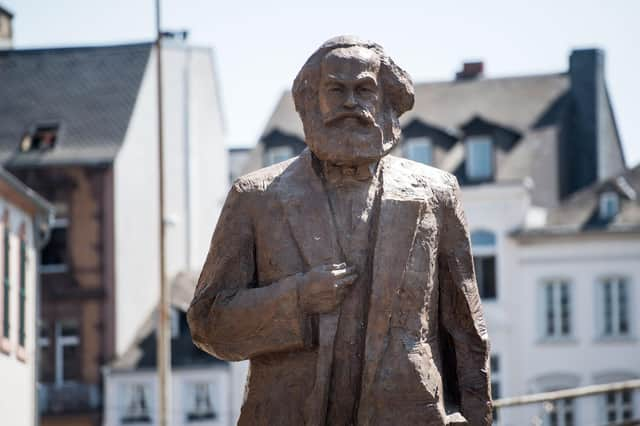Scottish independence drive and left-wingers are putting Edinburgh's economy at risk – John McLellan


Domestic woes aside, the Ukraine War is the defining event, and who this time last year could have predicted hundreds of refugees would be living in a re-purposed cruise ship in Leith? The war, which has driven inflation to levels not seen since the 1980s, will continue to effect prices of basic commodities, but as the world adapts to deglobalisation there are clear signs conditions can improve next year.
A new survey of 300 chief executives and major investors by international management consultancy Teneo, which has an office in Fountainbridge, shows pessimism amongst the CEOs for the first six months of 2023. But the investors are much more bullish, with over 70 per confident about improvements in customer demand, access to capital demand and economic conditions generally.
Advertisement
Hide AdAdvertisement
Hide AdThere is unanimity that deglobalisation is real and happening now, so clear priorities are adjusting supply chains, finding new sources of finance, relocation, and “onshoring” staff. The survey shows confidence is significantly lower in the UK and Europe than the Americas, perhaps reflecting proximity to the Ukraine War, and there is no doubt optimism here is in short supply.
This month the CBI issued a particularly gloomy forecast for 2023, expecting the UK economy to shrink by 0.4 per cent. And, although inflation will come down, the CBI reckons it will still be 3.9 per cent by the end of next year. Unemployment is expected to rise as businesses contract because of reduced consumer demand.
But other analysts, like Schroders bank and property giant CBRE, are more optimistic about the second half of the year and the Teneo survey highlights broad expectation of improvement in services and technology, two areas in which Edinburgh excels.
With a high quality of life and access to an educated workforce, there is still an opportunity for the city to buck UK trends if the right investors can be targeted with the right projects and the political landscape is stable.
The latter might be a problem, but as recent polling gains for independence have stalled and there is no prospect of a referendum, businesses delving beneath the rhetoric will find domestic political conditions steadier than some politicians might have us believe.
Their approaches may differ, but both Labour and Conservative parties agree that England’s big regional conurbations need more power to compete and there is no question they are champing at the bit and will be single-minded about selling their virtues.
Manchester, Birmingham and Teesside don’t just have London in their sights, and if Edinburgh and Scotland wastes time squabbling about political division then we will be left behind.
It’s why left-wing posturing like opposing the Forth Green Freeport bid is the politics of the madhouse, giving potential backers every reason to explore other opportunities where their money will be more welcome.
Advertisement
Hide AdAdvertisement
Hide AdAs anyone working in capital investment will tell you, the money dried up in the run-up to the 2014 and Edinburgh can’t build a thriving economy on piles of unread copies of the Communist Manifesto or SNP independence pamphlets.
Comments
Want to join the conversation? Please or to comment on this article.
